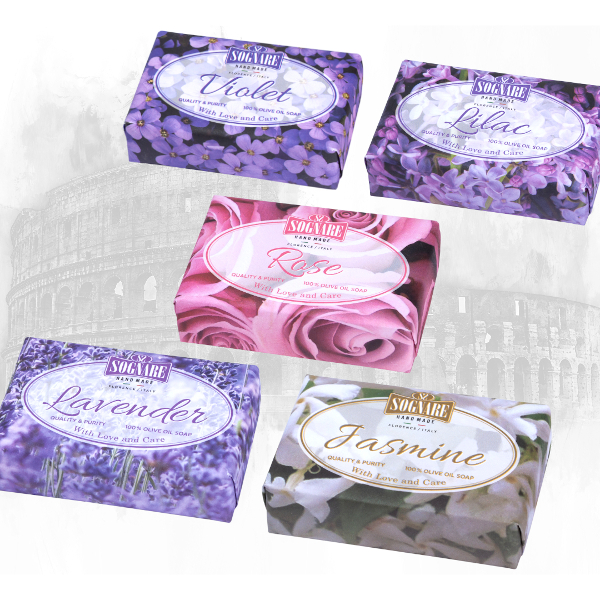THE STORY OF THE SOAP
The history of soap is as old as human history. The use of soap for personal cleaning and care is one of the most indispensable needs of our daily lives.
The history of soap, which can also be defined as the first cleaning agent, dates back to 6000 BC however the most primitive recipes for soap appeared in the Sumerian Tablets (2500 BC) while its widespread use was made possible by the discovery of the Romans in 1000 BC.
With the discovery of soap bars, soap making areas and under the lava at Pompeii we now know that the use of soap was quite common.
The Roman bath, which started the bath culture, was built in 312 BC. However, the use of soap as a personal cleaning material started in 200 BC. In the meantime, sand, milk, plant oils and leaves were used for body cleansing. Galen, who lived between 130-200 AD and was one of the leading physicians of the period, made a receipt for soap for the first time. The inscriptions tell that the substance used as soap is formed when oil is added to the water in which the wood ashes are boiled and slowly melted.
Modern soap making developed in the 19th century after the French chemist Michel Eugène Chevreul showed that soap is a salt of fatty acids. Historically, soaps were usually made by the saponification reaction of sodium, soda ash or potassium and its salts and fatty acids with lye.
Natural soap is a product that does not contain any additives, flavors, colorants or synthetic substances that are contrary to human health, other than its natural content.
''SOGNARE NATURA'' soap products are handmade luxury and natural products by using completely herbal (olive oil) and natural perfumes.

